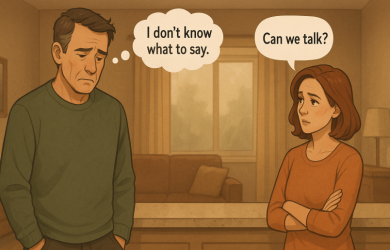10 Basic Netiquette Rules to Protect Your Relationship

Heal & Grow Daily for a Happier Relationship
Subscribe FREEKey Takeaways
Marriage.com AI Quick Summary
We need each other for happiness and success. Consequently, we use etiquette to create mutual respect and understanding.
Without social norms, both online and offline, we risk alienating those we might later need for help. Today, internet etiquette, or netiquette rules, allows you to make the right connections.
In this article, let’s understand what the term ‘netiquette’ stands for and what rules can govern these relationships.
What is netiquette?
The netiquette meaning refers to the rules and guidelines we expect from each other when communicating and posting online. Just like you don’t expect a stranger to shout at you when you walk down the street, you don’t expect an unknown blogger to send you hate messages.
Netiquette rules remind us that we are not acting solo and that our online actions can be just as damaging as anything we do offline.
Why is netiquette important?
Netiquette rules are critical because being online creates a false sense of safety. In some cases, people even operate anonymously.
Such an environment creates the online disinhibition effect, as explained in this research paper. Moreover, we get instant feedback to curb our behavior in the real world, but not as much online.
So, to protect each other from online abuse, we have proper netiquette.
10 basic netiquette rules to protect your relationship
Netiquette rules have become necessary sometimes, or they can create misunderstanding and harm the relationship.
Try to follow these netiquette tips if you don’t already.
1. Respect privacy
The basics of any netiquette policy are to honor each other’s privacy. If you have any doubts about sharing posts, simply check with the author first.
Related Reading: How Much Privacy in a Relationship Is Acceptable?
2. Don’t spam
It seems obvious not to send messages that people don’t want to receive, but how many times have you forwarded something to “all” without thinking about it?
The basic rules of netiquette include not overloading others with unnecessary information or messages.
3. Don’t use social media as a venting platform
Other key netiquette examples include being respectful and informative.
Using Facebook or Twitter to simply vent is both tiring and stressful to others. Moreover, as this article on Venting by the University of Wellington shows, it puts unnecessary strain on the receiver or, in this case, the reader.
4. Consider your offline expectations
If in doubt about the guidelines of netiquette, go back to the basics. What do you expect from people when you interact in the real world? In short, follow the same approach.
5. Avoid airing your dirty laundry
When it comes to bad netiquette examples, certain problems should remain private. Yes, it’s good to get support from friends and family but not in a call-to-action type post.
Oversharing, in general, is usually frowned upon because we have different levels of intimacy with various friends. Mere acquaintances would not know what to do.
Moreover, a real problem needs a face-to-face conversation with someone who can be there for you by listening. You can’t get that type of interaction through a messaging portal.
6. Be wary of online debates
Proper netiquette calls for not adding fuel to anything potentially discriminating. In short, following netiquette rules means you stay respectful whilst giving people the benefit of the doubt.
7. Remember the real-life person
One of the best netiquette tips is to imagine the people who will be reading your message. Picture them in your mind, including their facial expressions, as they read what you are about to send.
That way, you preempt any hurt or disappointment you could inadvertently cause. You can then rest assured you’re following netiquette rules.
8. Respond appropriately
Good netiquette means that you respond to messages in the same tone and style. Of course, you should respect your style, but if someone is very formal, you don’t reply casually with colloquialisms.
Furthermore, following the rules in netiquette means replying to messages within 1 to 3 days, even if it is only to let them know you’re still investigating.
9. Check-in on your intentions
When applying the rules of netiquette, it’s a useful tip to check in on the aim behind your post. In short, are you sending it for your own validation, or will it add value to readers?
10. No blame or hate speech
The fundamentals of netiquette policy mean staying away from publicly accusing or hating others. You may do this in the heat of the moment, but it can adversely affect your mental health, too, in the long run.
Watch this video to learn more about the impact of social media on mental health:
Some commonly asked questions
Here are some answers to some pressing issues that can help clarify some of your doubts related to netiquette rules:
What are the guiding principles of netiquette?
So, what is the basic rule of netiquette? It all boils down to following the same approach as in real life. If you don’t expect to be judged in public at a friend’s gathering, make sure you don’t do it online.
To give you an idea, which of these is an example of proper netiquette?
- Invite all your friends to a party with a polite message.
or
- Host an exclusive party where you can gossip about others.
Clearly, the first one where your friends feel included and respected is the way forward.
Why do we need protocol and netiquette rules for online meetings?
The golden rule of netiquette is to act as if you were physically in front of friends and family. Yes, the guidelines of netiquette are there to help you make sure you don’t make any mistakes.
Regardless, if you always first reflect on your intentions before sending a message, you’ll most likely catch the ones with negative impact in time.
When it comes to online meetings, make sure you’re also aware of digital etiquette safety tips. So, don’t share personal information, especially passwords or bank account details. Moreover, think before you befriend total strangers, as sadly, not everyone has the best intentions online.
Final thoughts
Using proper netiquette means being respectful of others’ feelings and privacy. Moreover, you shouldn’t add to fake news or spam people.
In general, online communication has some great benefits, but it can also cause huge mental and emotional distress.
If that’s you and if you feel bullied online or generally unsafe, contact a relationship therapist. They will guide you to feel secure again such that you can also define your online boundaries within netiquette rules.
Want a healthier, happier relationship - one step at a time?
 Tips
Tips
Write your tip or submit a video tip
All tips are reviewed before the publishing.
Share this article on
Recent Articles
Related Quizzes
Heal & Grow Daily for a Happier, Healthier Relationship
Subscribe FREE on YouTube We'd love your feedback!
We'd love your feedback!
 Expert Q&A
Expert Q&A
Ask your question related to this topic & get the support you deserve from experts.


 Reviewed by
Reviewed by
















 Thanks for your feedback!
Thanks for your feedback!